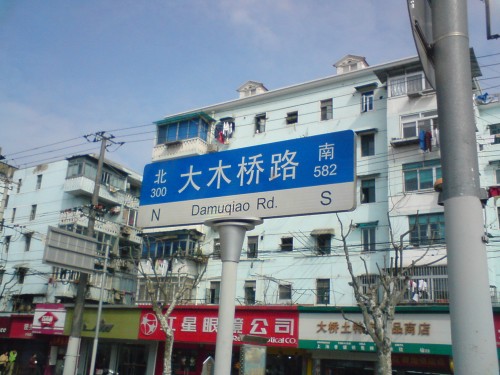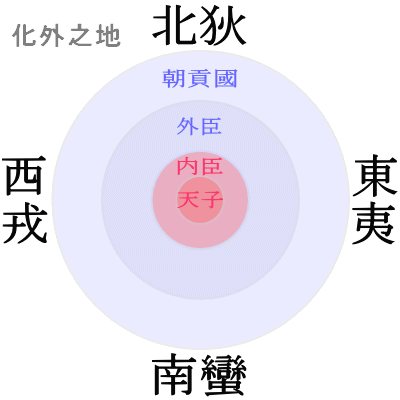I had a heated conversation with Y yesterday, which ultimately became kind of ugly, but more importantly was the content and conflicts that arose from our points of view: one from a local Chinese, and another from a Chinese foreigner.
There were many misunderstandings to begin with, primarily because of language problems. But that’s besides the point. Y had just finished reading a book titled “I don’t want to be a Chinese in my next life” (“来生不做中国人”) by Joe Chung, and so we casually started chatting about Chinese culture and the state of affairs. She mentioned how Chinese civilization had deteriorated after so long, and discussed about how things needed to change for standards of living to improve. And i guess that was the beginning of our conflict. I challenged her notion of standards of living, and proposed that the idea of ‘improvement’ is a consequence of modernist ideals seeped into China (ever since the days of Sun Yatsen). Modern cities look to Western models as their yardstick, and are forever chasing the shadows of the latter, always one step behind, rather than manifesting on their own terms. Yes, one can argue that chasing Western models IS their own way of growing, but it is still significantly different from motivations that come from within. I told Y that Asian civilizations today use western standards of living to gauge if theirs is up to par, and she disagreed. She said standards of living are universal, because human beings in general have the same needs, and thus are after the same things. She said it is common sense that having a cell phone is better than having a beeper, and having railroads is better than walking all the way. I told her about how the Europeans used to think that way too, coming to Africa and deeming them as ‘uncivilized’ and ‘uncultured’, and so tried to ‘help’ them by teaching them the word of God.
Allow me to digress for a bit into something I read from Lin Yutang. Before i read him, i used to think standards of living were universal too, and that everyone has certain basic needs and wished for the same luxuries. But i stumbled upon a chapter in his book where he wrote about how the Westerner would come to China and think that the farmers are unhygienic, and that their homes are dirty and their lives filthy. But Lin Yutang reminded me that all this, including the western idea of human rights and democracy, are still on Western terms. There is another way to think about this. Lin Yutang uses the word ‘degeneration’, and says that if you look deeper into the matter, it is the Western model of living that is of a lower standard, because the clean, pristine way of living has caused Westerners to be weaker biologically and mentally. They remain indoors most of the time (like most of us do now, thanks to Modernity), and are less tolerant of outdoor climates that are closer to nature. The Chinese farmer, on the contrary, being so used to ‘dirt’, or maybe i should say ‘natural surroundings’, has a higher tolerance and survivability of the wild, and thus is stronger. Now, is it necessarily fair to say that everyone wants to have a ‘higher’ standard of living, only to be degenerated over time and generations? I don’t necessarily have a definitive answer yet, and neither am i saying that one is better than the other, but i sure do think that the Modern life is not it, and that it is only one of many routes that one can take.
But it also becomes a different matter when a civilization is critiquing itself, if the Africans look at themselves and start wishing they were White. Who are we, as outsiders, to judge if they should or should not want to be like another? And yes, the same pattern happens again: I am an outsider, only trying to ‘help’. Am I really ‘helping’? What makes me think I know what’s better for China? Y resented some of the things I said because I am speaking from the point of a foreigner, and who am I to judge China’s way of reinventing themselves? I guess this is the part where it gets murky, because I am Chinese, but yet I am not. Am I helping my own people, or am I helping a foreign race? There is no answer to this, only how one sees it. When does an outsider step in to interfere with someone else’s family problems? I’m not sure there’s a definitive answer. America was praised when they defeated Hitler, but criticized for invading Vietnam and Iraq. When does one draw the line?
As much as I’m writing about my conversation with Y, and as much as she said some things that upset me a little, I am not unhappy that we spoke, and am not writing this out to prove that I am right whatsoever. Rather, I am writing this out so that I lay things out in a clear manner for proper criticism, so that we may move on someday in a more objective manner. In fact, I am glad we spoke, because we laid out our differences, and only by overcoming these issues will we become stronger. One thing we did agree, was that we both knew we loved the Chinese civilization, and probably only differed in our approach to the matter.
Back to our conversation. Y criticized my way of thinking as being limiting and non-constructive, which i do agree in some ways. Back in Portland, when Yinghao came to visit me, he did mention how it’s pointless to criticize something without giving a solution. Y said if i refused to define a standard, how can civilization move on? Even if it is ‘wrong’, and ultimately they realised it isn’t what they were searching for, at least they went there and learned their ways, and then they will move on from there. I do not disagree totally, but perhaps I wanted China to not have to go through that process of erring, because right now (2009), China is on the brink of change, and whatever happens now is going to affect them for many years to come. It’s almost like child psychology, where when a child is forming their structural notions of identity and their surroundings from a clean slate, and the growing period is pretty sensitive because an extreme incident might traumatize the innocent mind. Yes, China has already had their fair share of traumas, as I have mentioned in another post, but I guess what I’m focusing here is the structural framework for China’s evolution.
The notion of improvement. What does that mean? How does a civilization decide to build more railways, more skyscrapers, and more Starbucks? When I stopped over at Beijing airport a year ago, I was surprised to see Starbucks; it was my first time on China soil, and there I was greeted by the familiar mermaid in the green circle. I told a Chinese friend of mine about this experience, and he laughed at me,”you thought China was so backward?” For a moment i thought that was exactly the reason why I was surprised, but on deeper thought, it was something else. It’s funny that one equates having Starbucks to being ‘not-backward’. My surprise had nothing to do with backwardness, but rather, the penetration of western culture in the east. There I was at the gateway of the most magnificent civilization, and I was greeted by the same culture that I had left behind in New York. Back to motivations behind improvement. One could think of improvement as a way of moving closer to where one wants to go, with a certain type of destination (or destiny) in mind. As such, the destination, or the desired place, is so important in shaping one’s growth. Here i’d like to suggest that ‘growth’ and ‘improvement’ have slightly different meanings, at least in how I am using them. Growth referring to change over time, and improvement referring to going ‘higher’ than what one already has, depending on the standard that is defined. I guess a good question would be to ask local Chinese people what their visions of the future are, because those visions are what shape their lives today. And only by changing that psychological vision, would we be able to change China’s future tomorrow.
But yet, the West has lost sight of the ‘future’. Modernist ideals have collapsed somewhat, and people aren’t so caught up with technology and for this futuristic notion of the world. Yet, China, and even most of Asia, is always looking for ways and ways of improving themselves. And here I am, trying to discourage them from ‘improving’, and encouraging them to embrace what they already have. For a civilization that is trying to reinvent itself, my view isn’t quite accepted. My ideals, just like how China views tradition, only hinders their path to modernity and utopia. I do agree with Y that some of the rural countryside needs help, that there are people who struggle to get meals, and have no chance to go to school. But yet, at the same time, do they really need ‘help’, and are we really ‘helping’ them? Looking at it another way, we are only judging them by city standards, and only trying to convert them into city-dwellers, and instilling aspirations for city-living into their minds. I don’t have an answer right now, because I am torn between both sides of the argument. Maybe, like what Y said, there is a need to be steadfast and objective, and to quickly define standards, or else things will never be done, and we will never know the answer.
Am I contradicting myself? Am I advocating against change? But yet i mention evolution. But then again, borrowing from the principles of art and design processes, one should never try to guess the ending or have preconceived notions of creativity. Like process-based work, the result should be a discovery, and open-ended, and maybe evaluated. So what do I really believe in, in terms of shaping the ‘future’ of China? I told Y that what I really wish for is for China to lead the way, and to have their own way of living and growth, whatever that means. Maybe it won’t happen during our lifetime, but my concern is to seed the idea now.
LIke what Azuma in the anime Naruto said, the ‘King’ of a village are the unborn children, and that is what the villagers live to protect.

